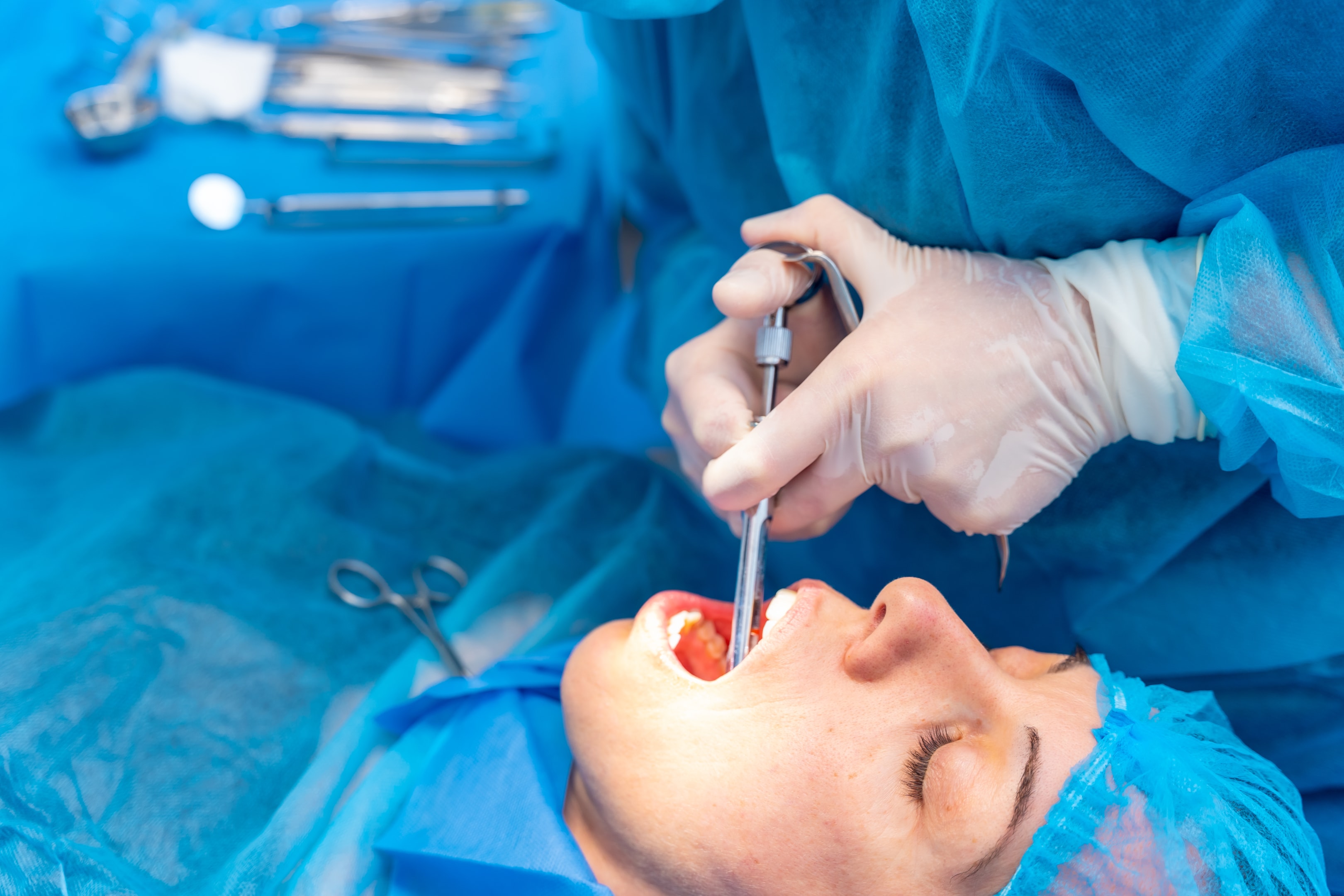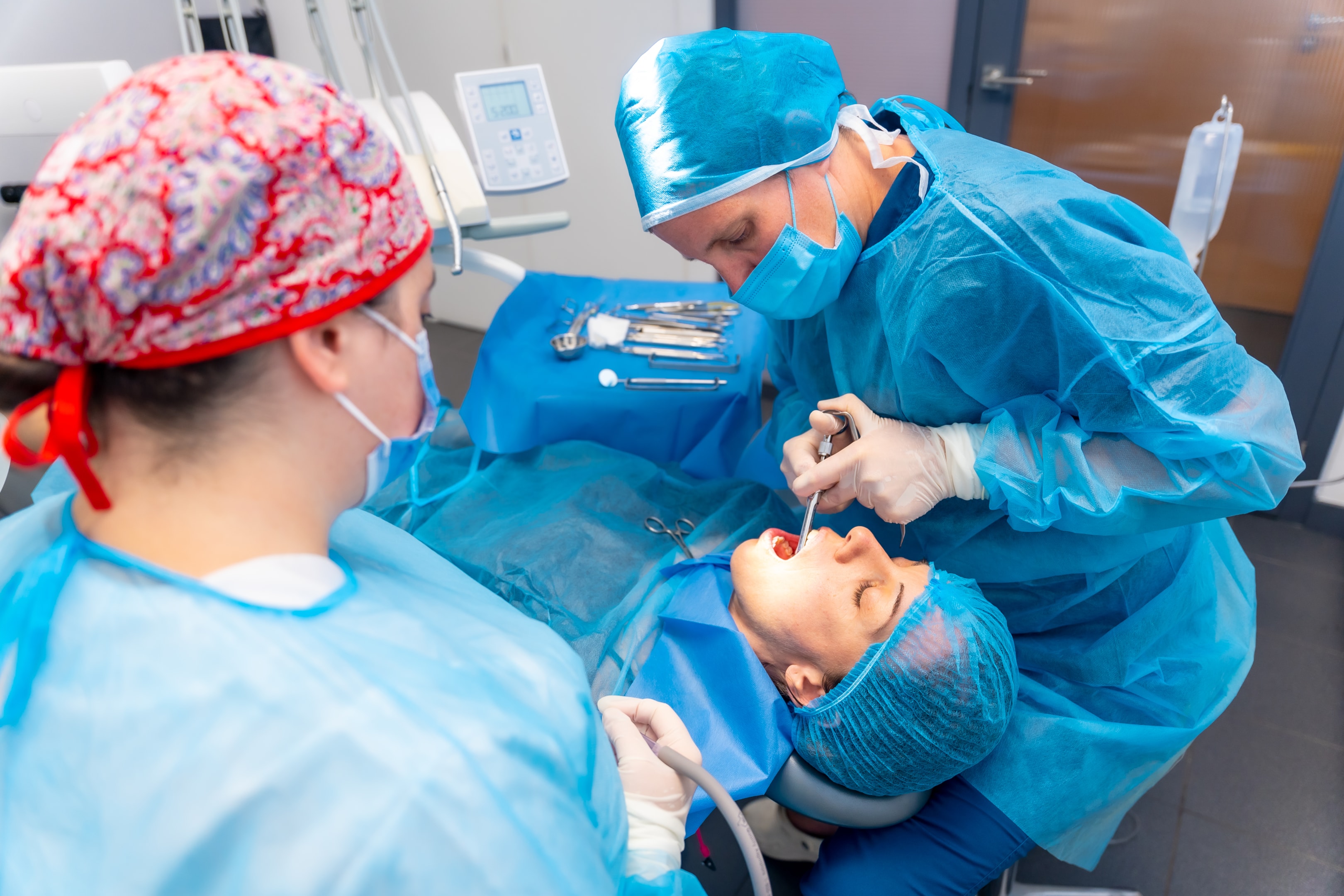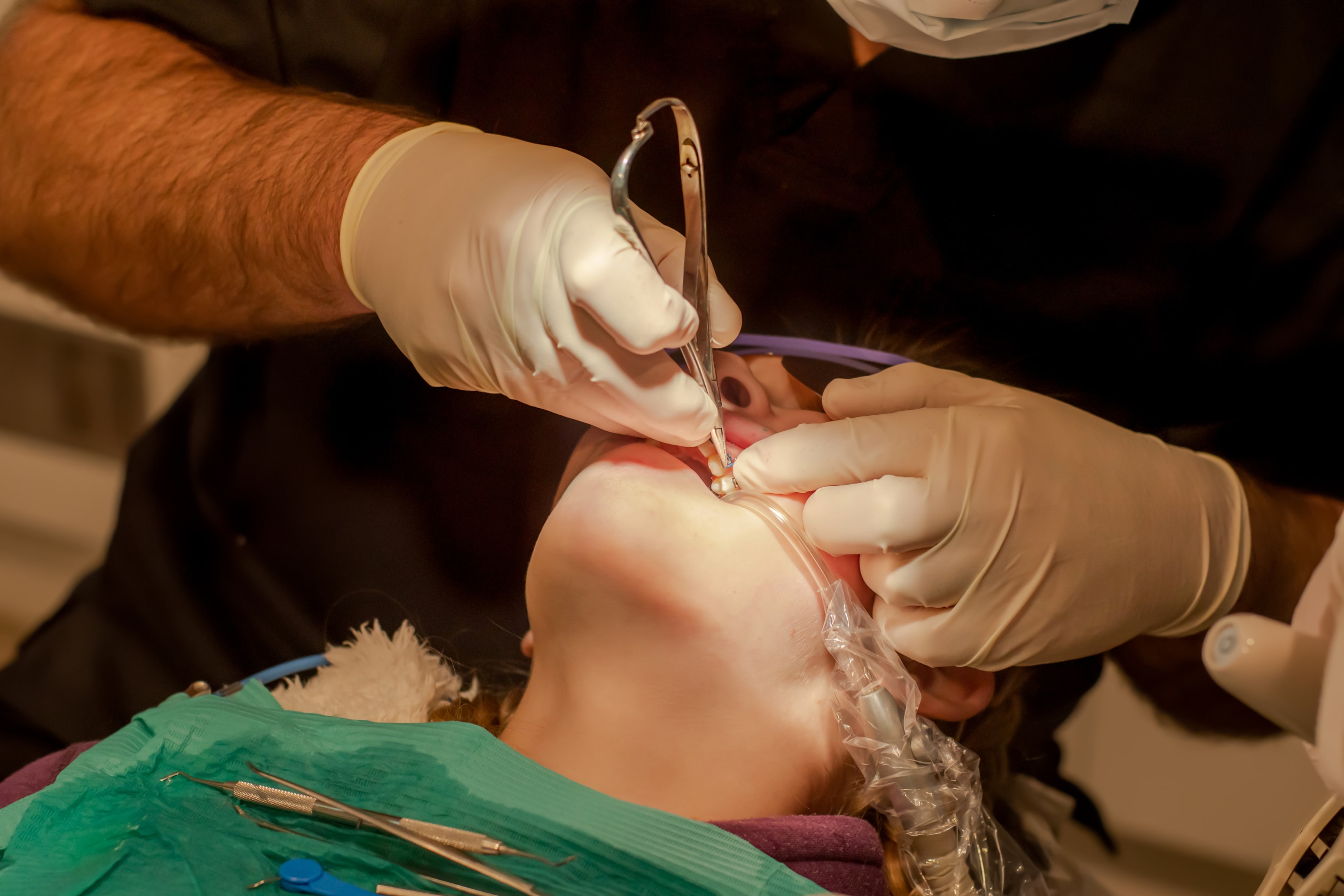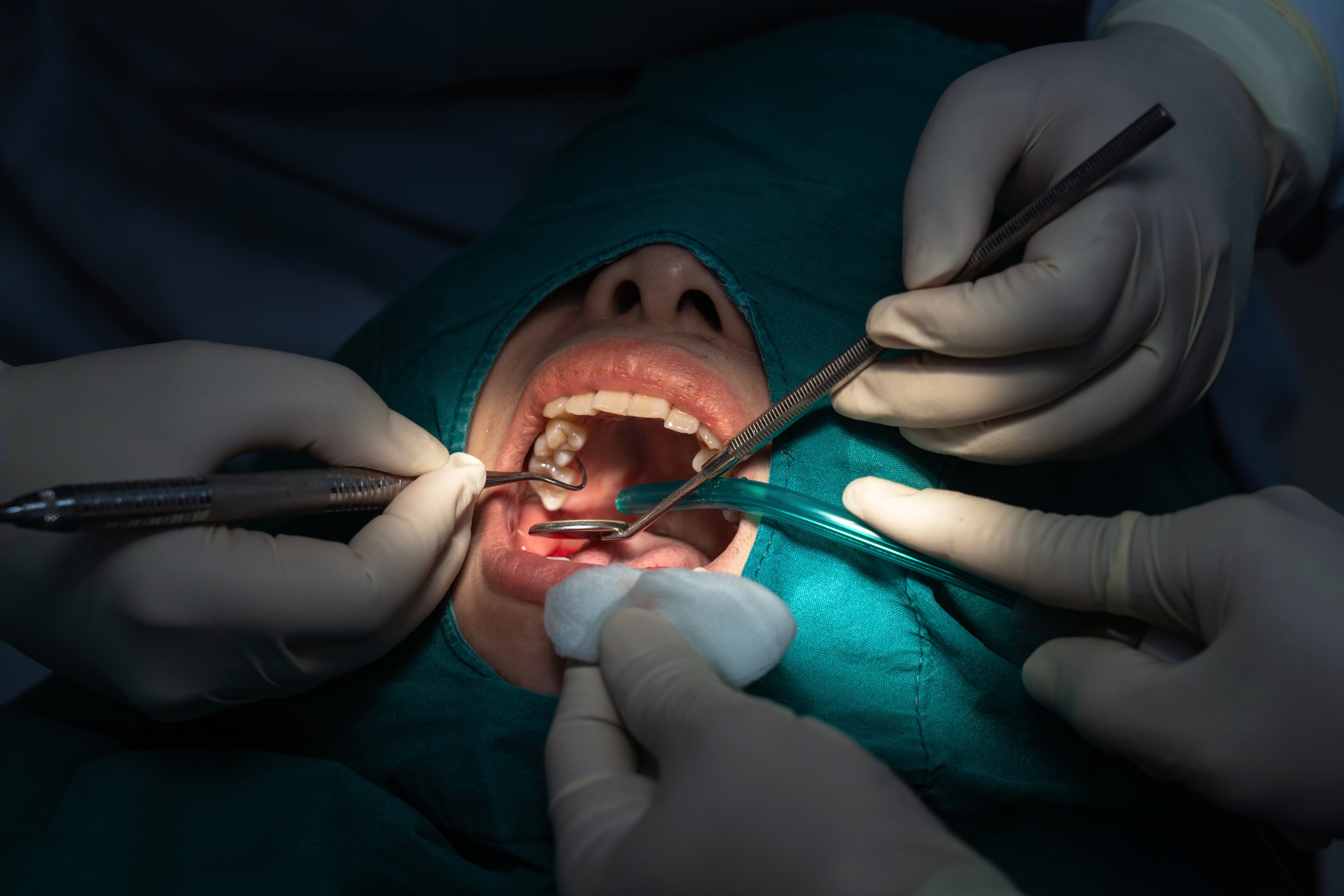


When you think about your smile, the last thing you probably want to imagine is getting a tooth pulled. But sometimes, a Calgary teeth extraction is necessary to maintain your overall oral health.
Here in Calgary, people might visit a dental clinic for teeth extraction due to various reasons, whether it’s wisdom teeth removal or a tooth extraction due to decay or infection.
So, how do you know when it’s time to bid farewell to a tooth? Let’s dig into when this procedure is needed, why you’d consider it, and what exactly it entails.
The Fork in the Road: When Do You Need a Calgary Teeth Extraction?

Picture your dental health journey as a winding road. Most of the time, everything is smooth sailing, but occasionally, you hit a fork where a decision is needed.
One path may lead to a simple extraction, while the other might take you to a more complex surgical Calgary teeth extraction. Sometimes, a dental emergency might arise, necessitating an urgent Calgary teeth extraction. But how do you know which path to take?
1. Wisdom Teeth That Overstay Their Welcome
Wisdom teeth, or third molars, are notorious for causing trouble. Often, there isn’t enough room in the mouth for them to fully emerge, leading to partially erupted or impacted wisdom teeth.
These can cause pain, infection, or push against other teeth, disrupting the alignment. This is when a wisdom teeth removal becomes necessary.
For many patients in Calgary, Calgary teeth extraction for wisdom teeth is a rite of passage into adulthood, often requiring oral surgery for impacted wisdom teeth.
2. Severe Decay or Infection
Sometimes, decay sneaks up on you. Even with the best dental care, a tooth may become severely decayed or develop a dental abscess, leading to the need for extraction. When this happens, a Calgary teeth extraction is the last resort to prevent the spread of infection to other teeth and gums. This kind of tooth extraction might sound daunting, but it’s crucial for your overall oral health.
3. Orthodontic Treatment Preparations
Orthodontic treatments often require some teeth to be extracted to create space for proper alignment. For instance, baby teeth might need to be removed if they are stubbornly hanging on when adult teeth are ready to emerge. In some cases, a Calgary teeth extraction is necessary to ensure proper dental alignment.
4. Gum Disease and Bone Loss
Advanced gum disease, also known as periodontal disease, can severely affect the jaw bone and gums, causing teeth to become loose. In cases where gum disease has led to significant bone loss, periodontal treatment might be necessary to address the condition, and a Calgary teeth extraction might be required to maintain the health of remaining teeth and the jaw.
The Art of Choosing: Why Consider a Calgary Teeth Extraction?

Choosing to get a Calgary teeth extraction isn’t just about fixing an immediate problem; it’s about preventing future complications and improving your quality of life.
A dental consultation can help determine if a tooth extraction is necessary. Here are some reasons why you might consider Calgary teeth extraction:
1. Alleviating Pain and Discomfort
Impacted teeth, such as wisdom teeth or other teeth that haven’t erupted properly, can cause significant dental pain and discomfort. By opting for an extraction, you can relieve this pain and prevent it from affecting your daily life.
2. Preventing Infection Spread
A decayed or infected tooth is not just a standalone problem—it can lead to a host of other issues, including an oral infection spreading to other parts of the mouth. Extractions prevent this spread and help maintain overall oral health.
3. Enhancing Oral Health and Functionality
Removing teeth that are problematic allows for better dental function and less strain on the remaining teeth. This is particularly true if the tooth extraction is part of a larger orthodontic treatment plan.
4. Facilitating Proper Alignment
In some cases, extracting a tooth can improve dental aesthetics by helping align remaining teeth better, providing a more aesthetically pleasing appearance and improved bite functionality.
The Process Unpacked: What Happens During a Tooth Extraction?

Understanding the dental procedure of a tooth extraction can ease anxiety and help you prepare for what’s to come. Here’s a step-by-step guide on what to expect:
1. Initial Assessment and X-rays
Before the procedure, your oral surgeon will use dental imaging to take X-rays to understand the tooth’s position and the surrounding bone. This step is crucial for determining whether you need a simple extraction or a more complex surgical extraction.
2. Administering Anesthesia
Depending on the complexity of the extraction, your oral surgeon might use pain management techniques such as local anesthetic, oral sedation, or even IV sedation to ensure you’re comfortable throughout the procedure. For more complex cases, such as impacted wisdom teeth, general anesthesia may be used. Many patients prefer this route as it ensures a pain-free dental experience.
3. The Extraction Procedure
For a simple extraction, dental tools like elevators and forceps are used to loosen and remove the tooth. For a surgical extraction, a small incision is made in the gum, and sometimes the tooth is broken into smaller pieces for easier removal.
4. Post-Extraction Care
After the extraction, gauze pads are placed over the socket to control bleeding and help form a blood clot, which is essential for the healing process. You’ll be given specific instructions on how to care for the extraction site to prevent complications such as dry socket—a painful condition where the blood clot is dislodged prematurely.
Why Choose an Oral Surgeon for Teeth Extractions?

While general dentists are skilled in performing simple extractions, there are several advantages to choosing an oral surgeon for your teeth extraction, especially for more complex cases. Oral surgeons have the dental expertise to handle these complex cases, ensuring a higher level of care and precision.
1. Expertise in Complicated Extractions
Oral surgeons have the surgical skills to handle complex extractions involving the mouth, teeth, and jaw. Their extensive training makes them well-equipped to handle surgical extractions, especially in cases involving impacted teeth, complex roots, or underlying medical conditions.
2. Advanced Pain Management Techniques
Oral surgeons offer various anesthesia options and have expertise in administering different forms of anesthesia, including IV sedation and general anesthesia. This is particularly beneficial for patients who are anxious or require more intensive pain management.
3. Reduced Risk of Complications
Due to their specialized training and experience, oral surgeons can better anticipate and manage potential complications, such as infection, excessive bleeding, or damage to surrounding teeth and bone.
The Recovery Road: Tips for a Smooth Healing Process

Recovering from a tooth extraction doesn’t have to be a painful ordeal. By following essential recovery tips, you can ensure a smooth healing process and avoid complications like dry socket.
1. Stick to Soft Foods and Stay Hydrated
After your tooth extraction, following dietary guidelines is important to ensure proper healing. It’s essential to eat soft foods that won’t irritate the extraction site. Think mashed potatoes, yogurt, and soups. Staying hydrated is equally important, but avoid using straws, as the suction can dislodge the blood clot.
2. Keep the Extraction Site Clean
Maintaining oral hygiene is crucial after a tooth extraction. Gently rinse your mouth with a saltwater solution or just a normal water to keep the extraction site clean and prevent infection. Avoid vigorous rinsing and spitting to ensure the blood clot remains intact.
3. Manage Swelling and Pain
Use ice packs on the cheek near the extraction site to provide pain relief and reduce swelling, and take any prescribed pain medication as directed. Over-the-counter pain relievers like ibuprofen can also help manage discomfort.
4. Avoid Strenuous Activity
For at least 24 hours after the extraction, avoid strenuous activity that could increase blood flow and cause bleeding or dislodge the blood clot.
When to Call Your Oral Surgeon
While some discomfort and swelling are normal after a tooth extraction, certain symptoms indicate you should contact your oral surgeon. If you experience severe pain, excessive bleeding, signs of infection (like fever or foul odor), or if you suspect a dry socket, reach out to your oral surgeon immediately.
Conclusion: Embrace Your Healthier Smile

Calgary teeth extractions are more common than you might think, and they’re often a crucial step toward maintaining good dental care and oral health. Whether it’s a wisdom tooth extraction or removing a tooth due to decay, choosing an experienced oral surgeon can make all the difference.
At Mahogany Oral Surgery, we’re dedicated to ensuring your dental procedure is as comfortable and effective as possible. Remember, taking care of your oral health today paves the way for a brighter, pain-free smile tomorrow. So, don’t delay—consult with an oral surgeon to discuss your dental extraction needs and take the first step towards a healthier mouth!


